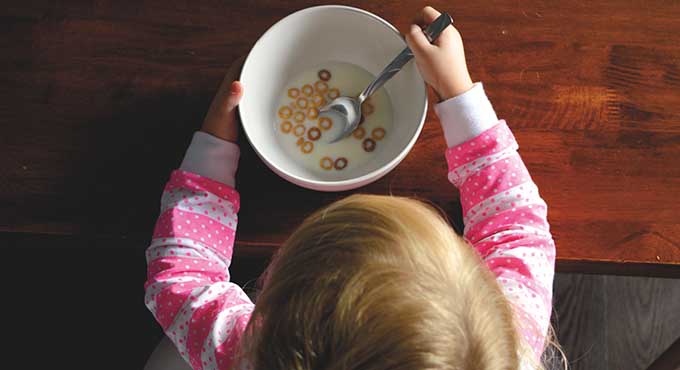Children With Autism More Likely To Have Allergies
Children with autism spectrum disorder (ASD) are more than twice as likely to suffer from a food allergy than children who do not have ASD, a new study from the University of Iowa indicates.

The finding adds to a growing body of research that suggests immunological dysfunction as a possible risk factor for the development of ASD, said Wei Bao, assistant professor of epidemiology at the UI College of Public Health and the study’s corresponding author.
“It is possible that the immunologic disruptions may have processes beginning early in life, which then influence brain development and social functioning, leading to the development of ASD,”
said Bao.
Significant And Positive Association
The study analyzed the health information of nearly 200,000 children gathered by the U.S. National Health Interview Survey (NHIS), an annual survey of American households conducted by the U.S. Centers for Disease Control and Prevention. The children were between the ages of 3 and 17 and the data were gathered between 1997 and 2016.
The study found that 11.25 percent of children reportedly diagnosed with ASD have a food allergy, significantly higher than the 4.25 percent of children who are not diagnosed with ASD and have a food allergy.
Bao said his study could not determine the causality of this relationship given its observational nature. But previous studies have suggested possible links — increased production of antibodies, immune system overreactions causing impaired brain function, neurodevelopmental abnormalities, and alterations in the gut biome. He says those connections warrant further investigation.
“We don’t know which comes first, food allergy or ASD,”
said Bao, adding that another longitudinal follow-up study of children since birth would be needed to establish temporality.
Shared Mechanism?
Previous studies on the association of allergic conditions with ASD have focused mainly on respiratory allergy and skin allergy, and those studies have yielded inconsistent and inconclusive results. The new study found 18.73 percent of children with ASD suffered from respiratory allergies, while 12.08 percent of children without ASD had such allergies; and 16.81 percent of children with ASD had skin allergies, well above the 9.84 percent of children without ASD.
“This indicates there could be a shared mechanism linking different types of allergic conditions to ASD,”
sais Bao.
Bao says the study is limited in that the NHIS depends on respondents to voluntarily self-report health conditions, so the number of children with ASD or allergies may be misreported by those taking the survey. But the large number of respondents and ethnic and gender cross-representation of the survey are major strengths.
Xu G, Snetselaar LG, Jing J, Liu B, Strathearn L, Bao W.
Association of Food Allergy and Other Allergic Conditions With Autism Spectrum Disorder in Children
JAMA Network Open. 2018;1(2):e180279. doi:10.1001/jamanetworkopen.2018.0279
How to Help Kids With Working Memory Issues by Rae Jacobson
Parents Guide to ADHD Medications by Child Mind Institute
The Most Common Misdiagnoses in Children by Linda Spiro, PsyD
How to Spot Dyscalculia by Rae Jacobson
Post-Traumatic Stress Disorder Basics by Child Mind Institute
How to Help Anxious Kids in Social Situations by Katherine Martinelli
Anxiety in the Classroom by Rachel Ehmke
The Benefits Of Unsupervised Play Will Make You Want To Back Off Your Kids' Activities In A Big Wayby Katie McPherson
How to Avoid Passing Anxiety on to Your Kids by Brigit Katz
3 Defining Features of ADHD That Everyone Overlooks by William Dodson, M.D.
Should emotions be taught in schools? by Grace Rubenstein